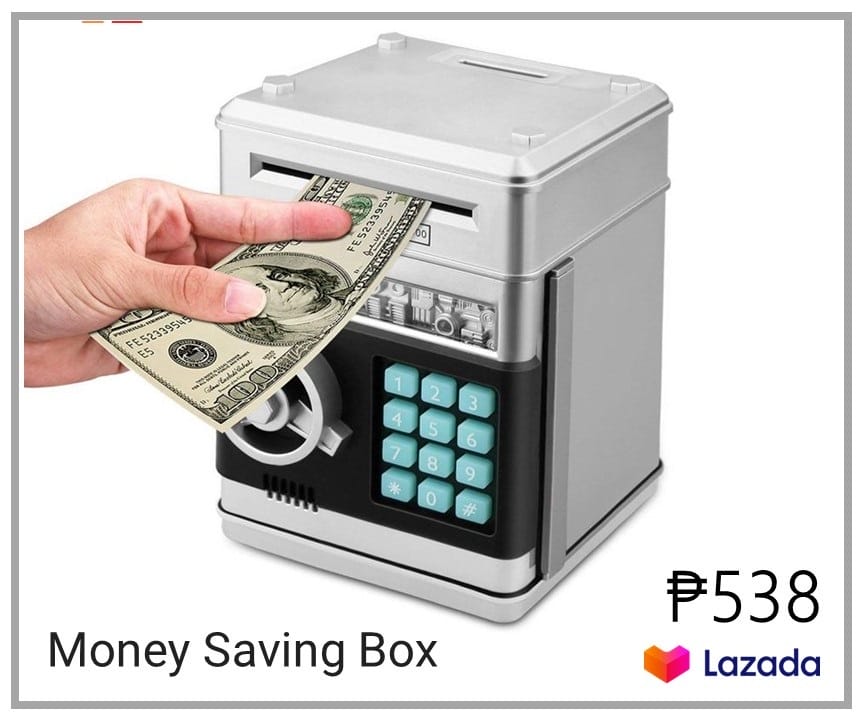Table of Contents
You might have a business idea but don’t know how to start a business in the Philippines? Well, this article is for you.
Starting a business in the Philippines can be a daunting task, especially if you are starting with small capital. However, there are several ways to get started, and with a little research and effort, you can start up your own business with ease.
Here are a few tips on how to start a business in the Philippines to get you started:
Get organized
The first step on how to start a business is to organize your thoughts and come up with a plan. This means setting goals for yourself and creating a timeline for achieving them. Creating an effective business plan will help you track your progress and make necessary adjustments along the way.
Network
The second step how to start a business is to network with your family, friends, and colleagues. The best way to find resources and support for starting your own business is through networking. Meet people who have similar interests or businesses, attend industry events, or even sign up for online entrepreneur forums to learn from others who have been there before you.
Find funding
The third step in how to start a business is to source your capital. Financing your startup can be difficult if you do not have enough initial capital available, but there are several options available to you depending on your situation and qualifications. You may be able to obtain funding from family or friends, take out loans from banks or other financial institutions, or even venture capitalists.
Be creative
The fourth step in how to start a business is to release your creative juice. No business is too small or too big to start up successfully. If you have an idea for a new product or service, there is a good chance that others out there also want to see it become a reality. Be creative and think outside the box when developing your business plan- this can help you stand out from the competition.
Plan your strategy
The fifth step in how to start a business is to create your strategic plan. Determine what your goals for starting your business are and develop a plan to achieve them. This will require both financial and marketing analysis, as well as determination of which channels are most effective for reaching your target market.
Stay focused
The sixth step in how to start a business is to be steadfast. No one starts out successfully in their business every time- there will be bumps in the road that must be overcome. Don’t get discouraged; it takes hard work and dedication to succeed in any venture. With these tips in mind, you are ready to start your own business in the Philippines!
Research the requirements
The seventh step in how to start a business is researching the requirements. It is important to know what you need to start and run your business. There are many things to consider, such as the type of business, the size of your company, and the location.
Once you have researched the requirements, it is time to determine what steps you need to take to start a business. There are many resources available online and through libraries that can help guide you through the process.
If you are unsure where to start, consult with an experienced business owner or accountant. Once you have determined what steps need to be taken, it is time to get started!
Choose a Business Type
The eighth step in how to start a business is to determine the business structure. A business can be started in a variety of ways, depending on what type of business is desired.
There are many different types of businesses to choose from, including:
- Sole proprietorships
- Partnerships
- S-corporations
- C-corporations
- Social enterprise
Each has its own set of advantages and disadvantages.
Before starting a business, it is important to understand the different types of businesses and their associated tax implications.
Some factors to consider when choosing a business type include the level of investment required, the time commitment needed, the market potential, and the financial stability required.
It is also important to consider the legal structure desired for the company.
Sole proprietorships are generally low-cost and easy to start, but they do not offer any legal protection for investors or employees. Partnerships offer more protection for both parties involved but require more time and effort to set up than a sole proprietorship do.
S-corporations are typically more expensive to establish than partnerships or sole proprietorships but offer greater legal protection for shareholders and employees alike.
C-corporations are the most complex form of business entity available and may be more costly to start up but offer the most legal protection for investors and employees.
Social enterprise is a business model that emphasizes social responsibility and environmental stewardship. Social enterprises are created to address social or environmental problems by creating jobs and wealth in the local community. They often use innovative business models to reduce costs and increase efficiency.
When starting a business in the Philippines, it is important to consider the local economy and regulations. The Philippine economy is growing quickly, but it remains a developing country with many challenges, including a high level of unemployment. As such, it is important to choose a business that has a high potential for growth in the local market.
The Philippines has a number of advantages as a business location, including strong English language skills and a large population of young and engaged consumers. However, there are also some specific challenges to consider when starting a business in the Philippines, including high levels of corruption and red tape. It is important to consult with an experienced lawyer before starting any business in the Philippines to ensure that all legal requirements are met.
Register with DTI (How to Start a Business)
The ninth step in how to start a business is to visit the DTI office. The Department of Trade and Industry (DTI) is the government agency responsible for regulating businesses in the Philippines. To start a business in the Philippines, you will first need to register with DTI.
The process of registering your business with DTI is straightforward and can be completed in just a few steps. You can also visit DTI’s website to register.
There are a few requirements that you must meet before registering your business, including having valid business permits and ensuring that your company is properly registered.
Once you have registered your company with DTI, you will need to submit various documents and reports to DTI on a regular basis.
Make sure that you are familiar with all the requirements before starting your business in Singapore!
Register with SEC (How to Start a Business)
The 10th step in how to start a business is to file your SEC application. The National Securities Commission (SEC) is a regulatory agency with jurisdiction over the promotion and sale of securities in the Philippines.
Registration with the SEC is a prerequisite for conducting business in the securities market.
The SEC maintains a website that provides information on how to start a business, including steps to take if you are an individual or company wishing to commence operations as a public float.
In order to complete the process of registering with the SEC, you will need to submit certain documents, including an application for registration, which can be found on the SEC’s website. You also must file periodic reports with the SEC, which can be found on its website or by contacting its hotline.
Finally, you must abide by all applicable federal and state securities laws.
Get a Business Tax ID Number
The 11th step in how to start a business is visit BIR. The business tax id number is a number that businesses need in order to file taxes. This number is usually given to businesses when they receive their business license.
If you have already started your business, you may not need a business tax id number yet. However, if you are starting from scratch, you will need to get one. There are a few ways to get a business tax id number:
1) You can apply for a new business license online through BIR’s website or through their office. Here’s how to register a business through BIR’s NewBizReg website.
2) You can also apply for a temporary business license if you plan on operating your business for less than six months.
3) You can also apply for an immediate start-up license which is good for up to six months.
4) You can also apply for an extended start-up license which is good for up to two years (during pandemic restrictions).
Mayor’s Permit and Barangay
You may apply for Barangay and Mayor’s permit according to the locality of your business.
Different cities and barangay have their processes. So better to research the requirements and documents required.
Open a Bank Account (How to Start a Business)
The 12th step in how to start a business is selecting your bank. Opening a bank account can be an important first step in starting your own business. Most banks offer free or discounted rates on opening accounts for small businesses, and many offer special financing programs for new businesses. Some tips for opening a bank account include:
1. Research the best banks in your area.
You may be able to get discounts or special offers through your Chamber of Commerce or other business organization.
2. Prepare a complete financial statement.
Include information about your company’s gross sales, expenses, and cash flow (if you have any). This will help the bank assess your viability as a business borrower and make recommendations about the type of account you should open.
3. Prepare the documents.
Make sure you have all the required documents ready to submit when you open an account, including identification proof, a business license if necessary, and tax returns if applicable.
4. Review the bank’s policies.
Ask the bank representative about its lending policies and guidelines for starting businesses. Many banks offer flexible credit policies that can work well for new businesses in certain circumstances.
Purchase Equipment (How to Start a Business)
The 13th step in how to start a business is to buy your equipment. When starting a business, it is important to have the right tools in order to succeed. One of the most important pieces of equipment you’ll need is a computer.
A good place to start your search for the best computer for your business is by checking out online reviews. Another key piece of equipment you’ll need is a printer.
Consider looking into purchasing a printer that can be used in both an office and a home setting.
Finally, you’ll need software to run your business.
There are many different options available and it’s important to find something that meets your needs and meets industry standards.
Conclusion: How to Start a Business in the Philippines
The Philippines is a country with a rich history and culture. It has a population of over 100 million people and is one of the most populous countries in Asia. The Philippine economy is growing, and there are many opportunities for businesses to take advantage of this growth. There are also many ways how to start a business in the Philippines with small capital.
Here’s the summary of how to start a business in the Philippines:
First, research the market in which you want to operate. This will help you understand the competition and identify any potential gaps in your product or service offering.
Next, identify your target audience. This will help you decide what kind of marketing strategy to use to reach them. You may also want to consider targeting specific regions or demographics within the country.
Finally, make sure that your business has all the necessary licenses and permits before starting up operations. This includes registering with the appropriate government agency and obtaining relevant safety certifications, such as fire safety certificates for commercial buildings.
Starting a business in the Philippines can be a challenging but rewarding experience. By following the steps outlined in this article, you will be on your way to owning your own business.











